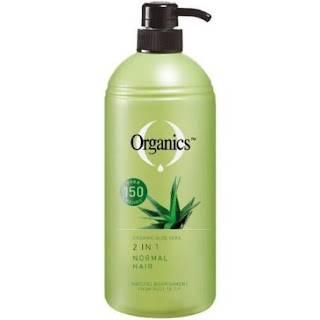Why is my scalp itchy and scaly?
Nobody likes an itchy scalp and the constant urge to scratch is painful. Scientifically known as itchy scalp, the cause can be as simple as anything from leftover hair products to skin conditions like eczema and seborrheic dermatitis. Now, causes and treatment can vary from one condition to another, but are not completely different from one another. We will solve this dilemma by tracing the cause to the best way of protection. It is characterized by irritated skin, which in some cases may peel. You can only treat an itchy scalp if you know the cause. Let's talk about some common reasons for your "itchy" situation.
1. Leftover hair products
Tropical scented shampoos that you love so much could be causing your scalp irritation. If shampoo or other hair care products are not rinsed off properly, our hair usually dries out and starts to look like white flakes on the scalp. As uncomfortable as it sounds, this disease is very common and very easy to treat. Synthetic hair products are usually full of chemicals that can be very irritating to your skin, so it's best to rinse it off.
2. dandruff
You can usually find dandruff on your scalp which is very oily or very dry. While not a serious problem, it can be a little tricky to get rid of. Dandruff can have many causes, such as: B. Infrequent washing of hair, sensitive skin, or Malassezia, the most common fungal infection of oily scalp and sensitive skin. While nothing serious, it has been linked to diseases such as Parkinson's and HIV.
3. Atopic dermatitis and seborrheic dermatitis
Atopic dermatitis (also known as atopic eczema) is common in babies, but adults can get it too. According to Healthline, the scalp goes through two phases, an acute phase and a chronic phase. The scalp may itch and peel in the acute phase, while inflammation and pain are noted in the chronic phase. Seborrheic dermatitis is a common skin condition. Scaly patches and redness are common symptoms of this disease. It also tends to spread from the scalp to the forehead or neck. We can recognize it in the form of swings, scalp eczema, or scalp psoriasis.
4. Stress
Stress during this time can bring about more than just a sleepless night. Irritation and itching of the scalp is often associated with stress. Stress can affect the entire body, including the scalp. In an article published in Newsweek, a stressful environment can encourage the production of certain hormones that can cause itching around the scalp.
5. Head lice
We all go through terrible days of flea infestations. One of the most common causes of itchy scalp is lice. The head can be easily transferred from one person's hair to another. Itching is usually the result of a tick bite, which can last for several days after the hair has been cleared of all lice.
What can I?
There are several hair care treatments available for your "scratching head" dilemma. While not all medications provide permanent results, there are definitely some effective remedies available to you.
Organic is the new black.
Synthetic shampoos are full of chemicals like sulfates, artificial fragrances, and other irritants.
Organic shampoos, on the other hand, are made with purely natural ingredients such as natural oils, minerals, and herbal extracts. They not only restore your scalp, but they also make your curls healthier and promote hair growth. Because it is made from natural ingredients, this product is suitable for all skin types.
DIY guardian
Your mom's DIY hair mask may not be as useful as you think. It is well known that honey has healthful properties. A simple hair mask recipe combines honey with yogurt and let it sit for two hours or so. Rinse off the mask and see the wonders of nature. Some other DIY masks you can make are honey, egg, and apple cider vinegar, or lemon and egg masks.
Doctors know best!
Sometimes it's better to see a dermatologist because skin conditions like scalp psoriasis or scalp eczema cannot be treated with home remedies or simple shampoos. It's a good idea to call a professional if your skin is infected, feels irritated, or home remedies don't seem to help. Depending on the disease and its intensity, your dermatologist may recommend a clinically treated cleanser along with shampoo or soap.
Easy to wash
Excessive shampooing can dry out the scalp and even make it itchy. While there's no direct answer to how much shampoo you need, most dermatologists recommend washing your hair every second or third day. If your hair feels greasy and itchy, this is your ponytail for a good conditioner.
Hair is both an accessory and an asset. In short, even if you struggle with scalp problems, there's no need to be ashamed or insecure. A healthy scalp requires very little care with the right products and finishes. Happy hair day!



Comments
Post a Comment